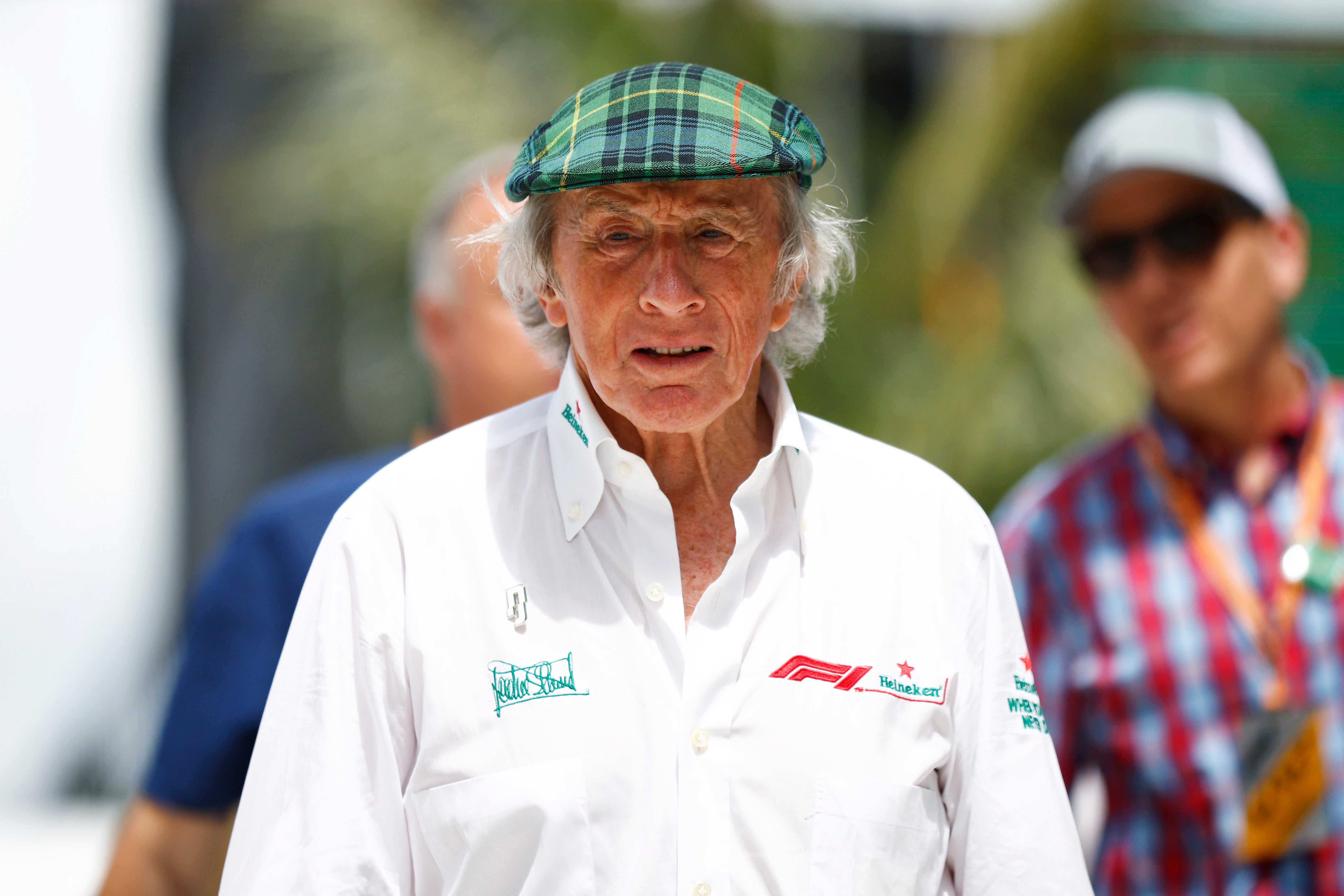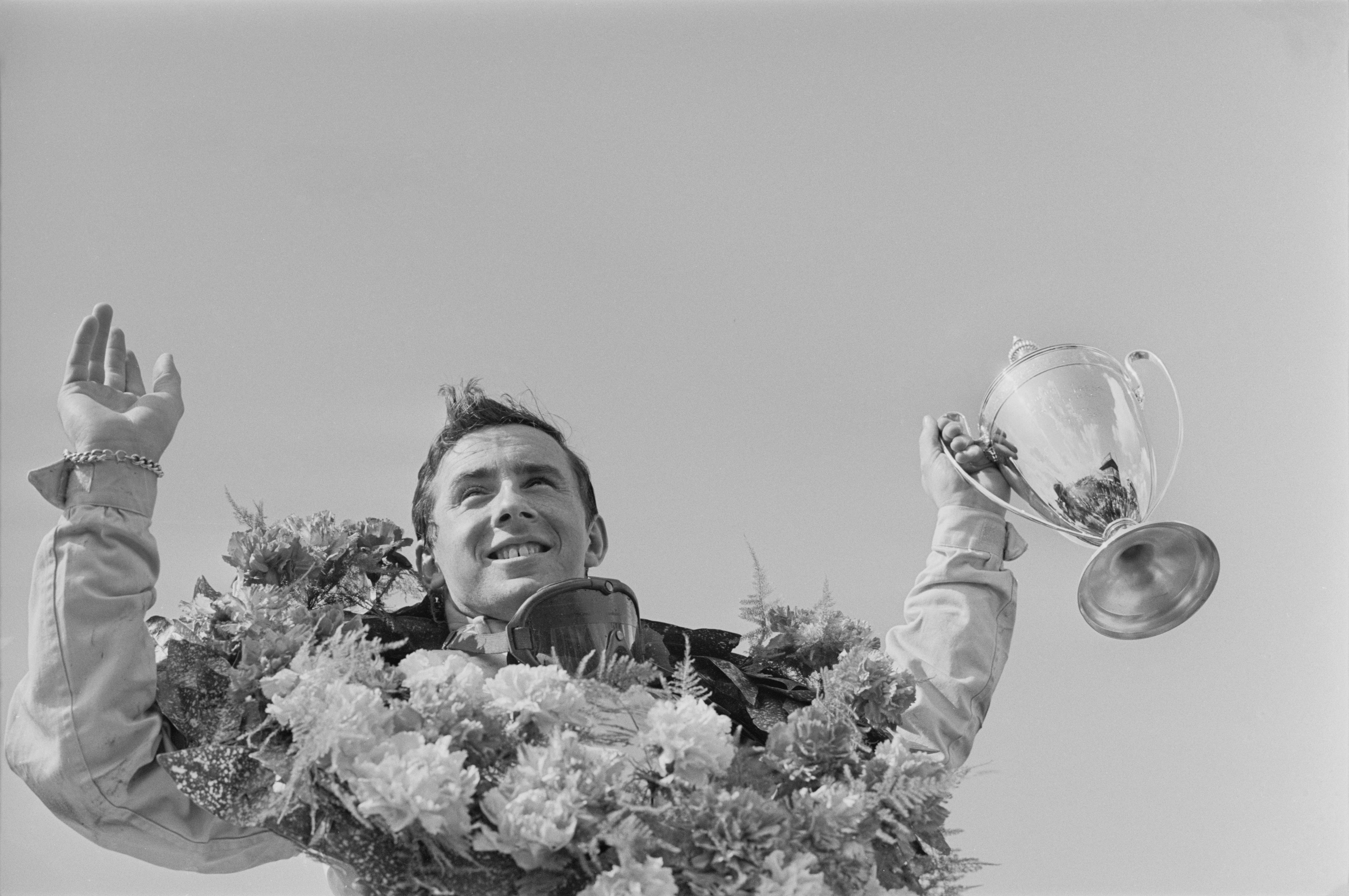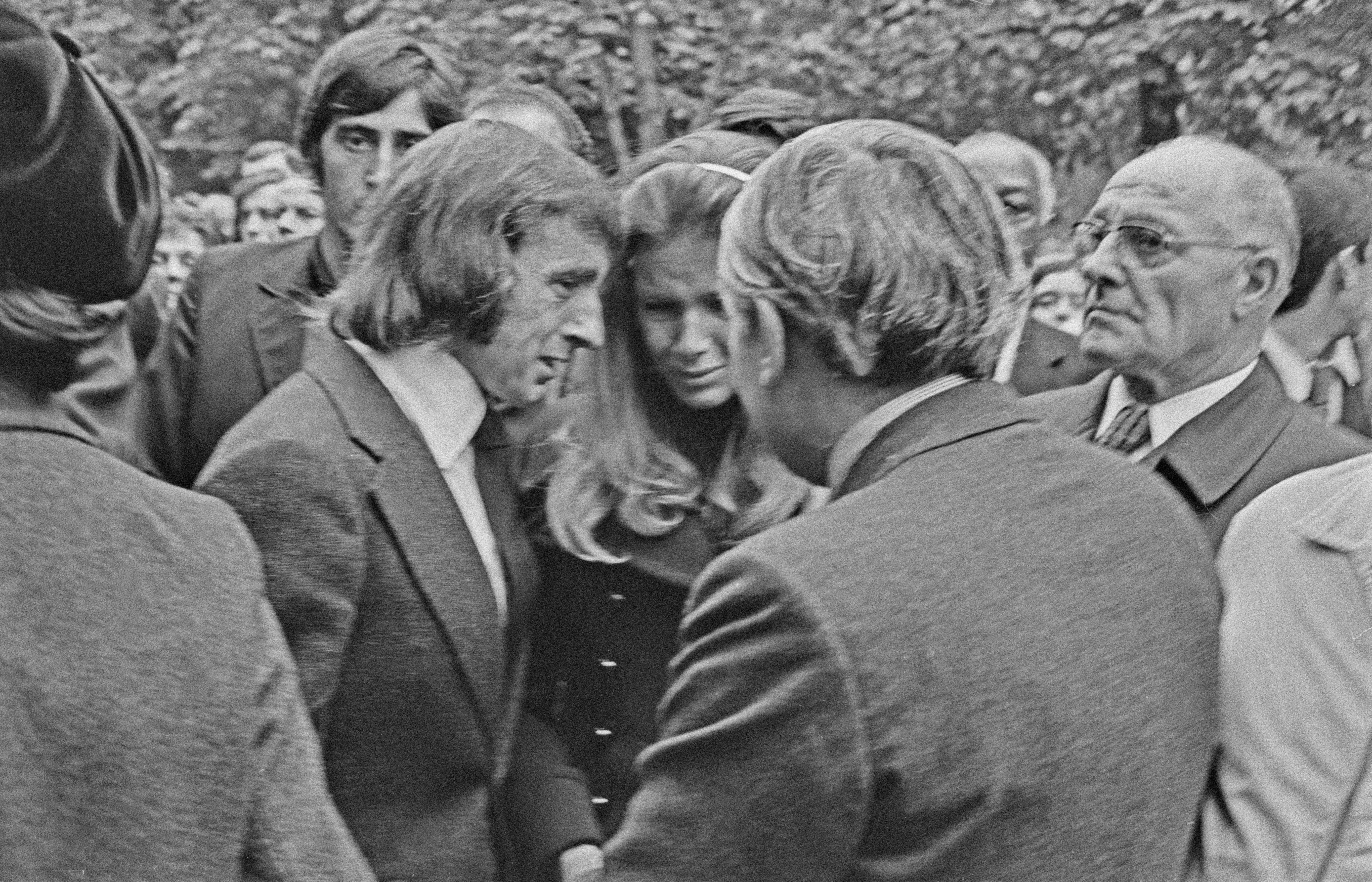Jackie Stewart on a life with dyslexia and his unrelenting push for safety in Formula 1
Exclusive interview: Ahead of a new film on his extraordinary life, the three-time world champion reveals how difficulties in the classroom helped shape his career

There’s a scene five minutes into Jackie Stewart’s enthralling new biopic which presents, in very stark reality, the most traumatic of experiences for any student of a tender age in school. Asked to stand up in front of the class and read a passage from Robert Louis Stevenson’s Treasure Island, Stewart simply couldn’t. Illustrated with an animated book dissolving into a random hotchpotch of upside-down letters, this moment encapsulates the Scot’s biggest fear as he rose to worldwide stardom. Not a crash on track. Not even the burden of fame. Simply his inability to read and write.
Near enough 70 years on, he still battles those same illiterate demons. “I still can’t read and write correctly,” he says. Forty-three times he stood on the podium in Formula 1 – on 27 occasions at the top of the tree. Yet every time, zoom in closer, and you see a man improvising.
“I still don’t know the national anthem,” he reveals. “Or the lord’s prayer. I’m an extreme dyslexic as are a whole load of other people. I left school at 15 with no education but I was good with my hands and a good mechanic. Without that, I wouldn’t have started driving with Barry Filer but it was there that the magic ride started. But it was actually just such an escape because for the first time in my life I was really good at something. At school, I was such a failure.”
Stewart, now 83, wrestling with his dyslexia is among a number of riveting topics encountered in Stewart, airing on Sky Documentaries from Friday. A 93-minute screening tells the story of one of Formula One’s most popular drivers, honing in on a career and life which was about a whole lot more than the Grand Prix victories and three World Championships. Fascinatingly, despite being produced by his son Mark, the man himself had no influence on the production, as unseen clips from the archives emerge in what he – with conviction which should not be mistaken for arrogance – describes as “the best motor racing film ever.”
“It was very emotional,” Stewart says of watching the film for the first time, alongside Prince Albert II and F1 CEO Stefano Domenicali in Monaco in May. “I would say for anyone who sees it, have your hanky with you! Stefano and the prince were both in tears at one point. It was amazing looking back at a tremendous period. I came through it without drawing blood from my body – some say there was no blood in Jackie Stewart’s body!”
Depicting his life from the banks of the river Clyde in his childhood to his globetrotting, topsy-turvy motorsport adventure, a key component throughout is Stewart’s unrelenting push for safety in motorsport. As he tells, out of all the drivers he raced with in his nine-year F1 career, 49 died in accidents on track.
Among his conquests beyond the chequered flag was flipping the mentality – and the entire ethos – surrounding the attitude of the sport towards life and death. Preventative measures were a necessity. Non-negotiable. That being said, Stewart had his dissenters, and was labelled a wimp by the traditional motorsport fraternity.
“I was a very unpopular world champion,” he recalls of his safety push. “I had death threats after we closed the Nurburgring [in 1970]. After Bruce McLaren’s memorial service in London we had a GPDA [Grand Prix Drivers’ Association] meeting and if it hadn’t been for Jack Brabham’s maturity age-wise at that time, we wouldn’t have got it passed. Jack was the last man to speak and he said ‘we’ve got to go with Jackie.’

“Whenever I left home for Spa or the Nurburgring, I’d always think ‘am I ever coming back here?’ People were at the gates to the track shouting and bawling. It was one of the biggest things I ever did in my life but it wasn’t a nice time. Simply a necessary time for change. The tracks weren’t safe. No run-off areas, no deformable structures. The cockpits today are survival cells – in our day you were sitting surrounded by fuel. I think the safety that exists in Formula 1 today is sensational. I was part of that, creating that change of attitude, and I feel very comfortable in knowing that I did the right thing.”
Since Ayrton Senna’s death in 1994 – a period of 28 years – Formula 1 has only experienced one fatality caused on track, Jules Bianchi in 2015. One too many, still, but Stewart can proudly and indisputably say he played a key part in that shift of focus. He was in the unenviable position of experiencing first hand just how the sport needed to improve its safety record. The passing of Jochen Rindt in practice at Monza in 1970 was one such occasion.
“There’s a bit in the film after Jochen died when I went to see him, but he had already passed,” he says, unflinchingly. “Just 34 minutes later, I had to get back into the car. I was in tears when I went in and was in tears when I got out. I did four laps and they were the fastest four laps. These emotions are the sort of thing which show up on the film enormously.”
The film concludes surrounding his final year in Formula 1 in 1973 and his concluding race, which was also meant to be his 100th grand prix. Yet the fatal crash of teammate Francois Cevert in practice at Watkins Glen did not result in tears behind the wheel this time. Enough was enough now. Stewart had lost patience, as so beautifully illustrated on screen.

“I decided not to race in respect to Francois,” he says. “I went out after the accident to take a look as some thought it might be a mechanical failure but it wasn’t in my opinion. It was a little bump on the left-hand bend that I had experienced myself. In that moment, I knew exactly what happened to Francois. Still to this day when I see that clip I’m still fighting it. It was such an emotional period.”
Nearly half a century on, Stewart still revels in the thrill and mayhem of the Formula 1 paddock. Alongside his work for his Race Against Dementia charity – with his wife of 60 years Helen diagnosed in 2016 – he is regularly seen at races providing tours of the pit lane to lucky ticket holders. He admits the sport is “bigger and better” today than it has ever been before, ahead of a record calendar of races in 2023.
Yet in Stewart’s view – once again, with no conceit in his voice, merely compelling judgement – the friendships forged were something different back in his day.

“The closeness of the relationships we had were just extraordinary really,” he says. “It’s not the same friendships they have today in the paddock. We had more characters, more camaraderie. They are fantastic memories. Francois was one of the best friends I ever had, as was Jim Clark, Graham Hill and Jochen.
“But on the track I was very lucky – I learned to remove emotion because I was trap-shooting for Scotland and England. If you’re tight and miss the target, you never get it back.”
Ultimately therein lies the paradox of the man ahead of the release of this film. His film. While Stewart emphasises the importance of emotion, and its removal in the professional sphere, emotion is perhaps the one overarching feature of his truly remarkable life, both on the road and away from the racetrack.
“Emotion is dangerous,” he sums up. “I learned never to get myself in trouble with emotion in motor racing. In my day before a race, everyone was up tight and they never did well on the first five laps. Me? I won all my races in the first five laps.”
‘Stewart’ can be seen on Sky documentaries and streaming service NOW on December 30th.
Join our commenting forum
Join thought-provoking conversations, follow other Independent readers and see their replies
Comments


Bookmark popover
Removed from bookmarks